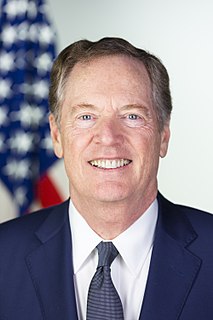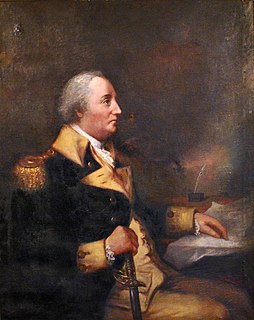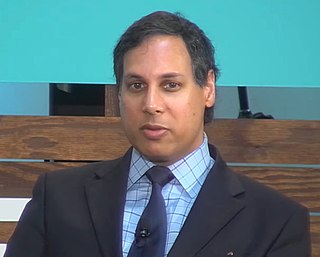A Quote by Robert Lighthizer
The recent blind faith some Republicans have shown toward free trade actually represents more of an aberration than a hallmark of true American conservatism. It's an anomaly that may well demand re-examination.
Related Quotes
We always think, 'Well, for a person who's blind, it must be an amazing, joyful miracle if by some chance their sight is restored to them.' Now, this may be true for blind people who lost their vision at a later age. It's rarely true for people who were born blind or who go blind at a very young age.
We are already well down the road toward a managed-trade regime. It would be far better to acknowledge that reality, and seek a set of reasonable rules, than to pretend that Ricardian trade is the norm and allow mercantilist states to overwhelm U.S. industry and ratchet down wages, in the name of free trade.
It is unquestionably true that the investment companies have their money more conventionally invested than we do. To many people conventionality is indistinguishable from conservatism. In my view, this represents erroneous thinking. Neither a conventional nor an unconventional approach, per se, is conservative.
The blessed Paul argues that we are saved by faith, which he declares to be not from us but a gift from God. Thus there cannot possibly be true salvation where there is no true faith, and, since this faith is divinely enabled, it is without doubt bestowed by his free generosity. Where there is true belief through true faith, true salvation certainly accompanies it. Anyone who departs from true faith will not possess the grace of true salvation.
The Democratic Party represents the American brain, and the Republicans represent not the American heart, or soul, but the American gut. The argument between brain and bowel, everywhere else in the Free World, has been decided long ago in favor of brain. But Americans still - it still divides the nation, this question, here in America.
I think some people have blind faith in American institutions without knowing a whole lot about them and think they will stand up to Donald Trump and are indestructible. I actually think democracy is not a definable and achievable state. Any country is either becoming more democratic or less democratic. I think the United States hasn't tended to its journey toward democracy in a long time. It's been becoming less democratic, and right now it's in danger of becoming drastically less democratic.
... there are some who, believing that all is for the best in the best of possible worlds, and that to-morrow is necessarily better than to-day, may think that if culture is a good thing we shall infallibly be found to have more of it that we had a generation since; and that if we can be shown not to have more of it, it can be shown not to be worth seeking.




































